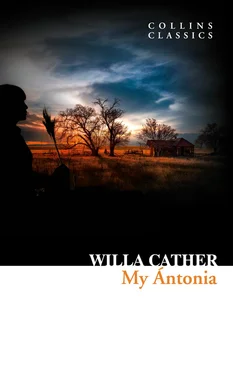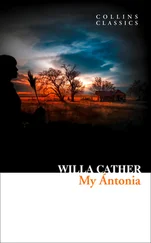William Collins
An imprint of HarperCollins Publishers
1 London Bridge Street
London SE1 9GF
WilliamCollinsBooks.com
This eBook edition published by William Collins in 2019
Life & Times section © HarperCollins Publishers Ltd
Fran Fabriczki asserts her moral right as author of the Life & Times section
Classic Literature: Words and Phrases adapted from Collins English Dictionary
Cover by e-Digital Design
A catalogue record for this book is available from the British Library
All rights reserved under International and Pan-American Copyright Conventions. By payment of the required fees, you have been granted the non-exclusive, non-transferable right to access and read the text of this e-book on-screen. No part of this text may be reproduced, transmitted, down-loaded, decompiled, reverse engineered, or stored in or introduced into any information storage and retrieval system, in any form or by any means, whether electronic or mechanical, now known or hereinafter invented, without the express written permission of HarperCollins
Source ISBN: 9780008322809
Ebook Edition © August 2019 ISBN: 9780008322786
Version: 2019-08-12
TO CARRIE AND IRENE MINER
In memory of affections old and true
Optima dies … prima fugit VIRGIL
CONTENTS
Cover
Title Page
Copyright
Dedication
History of William Collins
Life and Times
Introduction
Book I. The Shimerdas
I
II
III
IV
V
VI
VII
VIII
IX
X
XI
XII
XIII
XIV
XV
XVI
XVII
XVIII
XIX
Book II. The Hired Girls
I
II
III
IV
V
VI
VII
VIII
IX
X
XI
XII
XIII
XIV
XV
Book III. Lena Lingard
I
II
III
IV
Book IV. The Pioneer Woman’s Story
I
II
III
IV
Book V. Cuzak’s Boys
I
II
III
Classic Literature: Words and Phrases
About the Publisher
History of William Collins
In 1819, millworker William Collins from Glasgow, Scotland, set up a company for printing and publishing pamphlets, sermons, hymn books, and prayer books. That company was Collins and was to mark the birth of HarperCollins Publishers as we know it today. The long tradition of Collins dictionary publishing can be traced back to the first dictionary William co-published in 1825, Greek and English Lexicon . Indeed, from 1840 onwards, he began to produce illustrated dictionaries and even obtained a licence to print and publish the Bible.
Soon after, William published the first Collins novel; however, it was the time of the Long Depression, where harvests were poor, prices were high, potato crops had failed, and violence was erupting in Europe. As a result, many factories across the country were forced to close down and William chose to retire in 1846, partly due to the hardships he was facing.
Aged 30, William’s son, William II, took over the business. A keen humanitarian with a warm heart and a generous spirit, William II was truly “Victorian” in his outlook. He introduced new, up-to-date steam presses and published affordable editions of Shakespeare’s works and The Pilgrim’s Progress , making them available to the masses for the first time.
A new demand for educational books meant that success came with the publication of travel books, scientific books, encyclopedias, and dictionaries. This demand to be educated led to the later publication of atlases, and Collins also held the monopoly on scripture writing at the time.
In the 1860s Collins began to expand and diversify and the idea of “books for the millions” was developed, although the phrase wasn’t coined until 1907. Affordable editions of classical literature were published, and in 1903 Collins introduced 10 titles in their Collins Handy Illustrated Pocket Novels. These proved so popular that a few years later this had increased to an output of 50 volumes, selling nearly half a million in their year of publication. In the same year, The Everyman’s Library was also instituted, with the idea of publishing an affordable library of the most important classical works, biographies, religious and philosophical treatments, plays, poems, travel, and adventure. This series eclipsed all competition at the time, and the introduction of paperback books in the 1950s helped to open that market and marked a high point in the industry.
HarperCollins is and has always been a champion of the classics, and the current Collins Classics series follows in this tradition—publishing classical literature that is affordable and available to all. Beautifully packaged, highly collectible, and intended to be reread and enjoyed at every opportunity.
‘The fields below us were dark, the sky was growing pale, and that forgotten plough had sunk back to its own littleness somewhere on the prairie.’ These words close a famous passage from My Ántonia , in which two characters see a plough on the field as the sun sets behind it. The plough casts a long shadow, leading them to momentarily believe it is a person, only to realize it’s a simple farming tool. Within this image is contained the essence of Willa Cather’s writing – her quintessential rural landscapes, the nod to her classicist influences such as Virgil, the clean, incisive language, the imagery of empire-building in America and the sense of ultimately being dwarfed, like the plough, by the awesome power of the natural world. Her ability to build layers of meaning into her stories has made her one of the classic American authors, whose shadow grows ever longer over the canon of American literature.
Willa Cather was born in 1873, on a small farm in rural Virginia. Although she is most often associated with the wide, open plains of the frontier, her roots were firmly in the antebellum South where she lived until she was nine years old. In 1882, fleeing from an outbreak of tuberculosis in Virginia, Cather’s family moved to Nebraska, where her father first tried his hand at farming, then eventually moved the family to the frontier town of Red Cloud to open an insurance office. At the time, Nebraska was made up of mostly unsettled land, and at first the wild and open landscape awed and frightened the young Cather. We see this experience mirrored in the characters of her novels, such as Jim Burden in My Ántonia , who describes his first encounter with the great expanse of Nebraska as ‘feeling that the world was left behind, that we had got over the edge of it, and were outside man’s jurisdiction’. Despite this early reticence, Cather grew to love her home in Nebraska, where she received her early education from local shop-owners and other adults in her small town, many of them immigrants from a variety of backgrounds who provided the basis for her expansive worldview.
‘New Woman’ – education and success
Despite a childhood determination to become a physician, Cather eventually took up writing during her studies at the University of Nebraska. This was one of the first universities to admit female students, and so Cather was among the first generation of women to go to college in America. She was an active participant in university life, editing the student newspaper, The Hesperian , and writing continuously. After graduating with a Bachelor’s degree in English in 1894, she continued her career as a journalist, writing for various publications in Pittsburgh and supplementing her income with teaching. Only after a decade of establishing herself as a journalist did she begin to steer her work towards creative writing, publishing a short story collection called
Читать дальше












